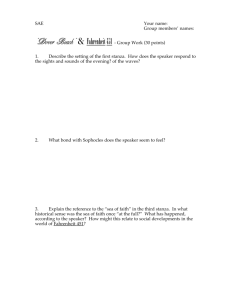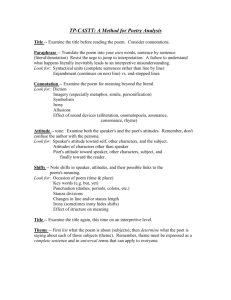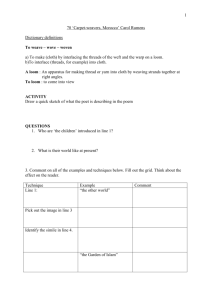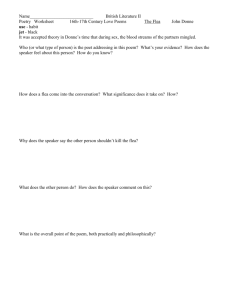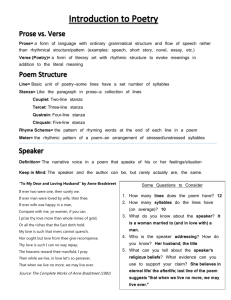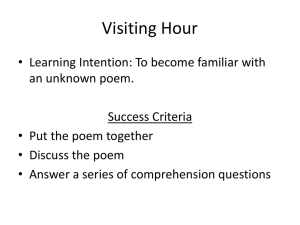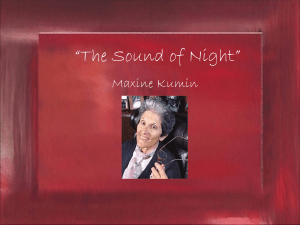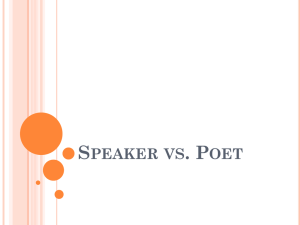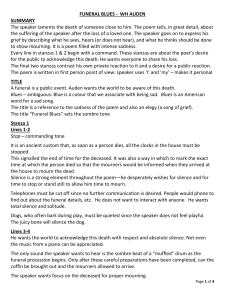Poetry Essay planning
advertisement
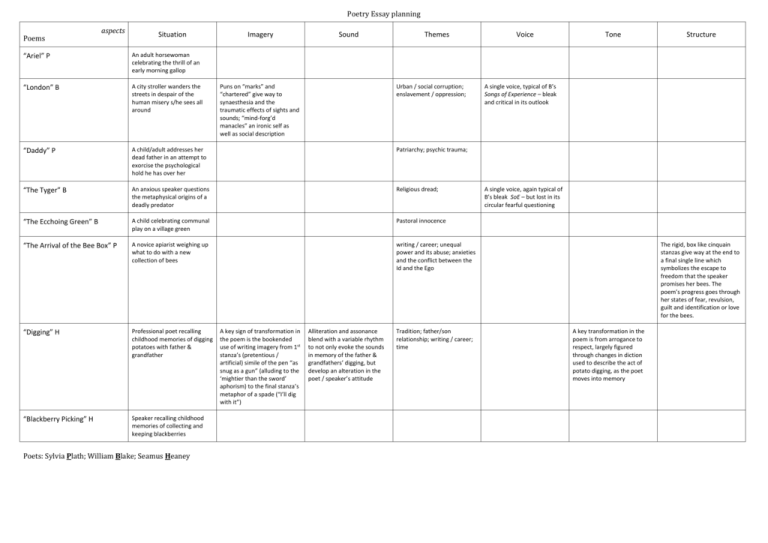
Poetry Essay planning Poems aspects Situation Imagery Sound Themes “Ariel” P An adult horsewoman celebrating the thrill of an early morning gallop “London” B A city stroller wanders the streets in despair of the human misery s/he sees all around “Daddy” P A child/adult addresses her dead father in an attempt to exorcise the psychological hold he has over her Patriarchy; psychic trauma; “The Tyger” B An anxious speaker questions the metaphysical origins of a deadly predator Religious dread; “The Ecchoing Green” B A child celebrating communal play on a village green Pastoral innocence “The Arrival of the Bee Box” P A novice apiarist weighing up what to do with a new collection of bees writing / career; unequal power and its abuse; anxieties and the conflict between the Id and the Ego “Digging” H Professional poet recalling childhood memories of digging potatoes with father & grandfather “Blackberry Picking” H Speaker recalling childhood memories of collecting and keeping blackberries Poets: Sylvia Plath; William Blake; Seamus Heaney Puns on “marks” and “chartered” give way to synaesthesia and the traumatic effects of sights and sounds; “mind-forg’d manacles” an ironic self as well as social description A key sign of transformation in the poem is the bookended use of writing imagery from 1st stanza’s (pretentious / artificial) simile of the pen “as snug as a gun” (alluding to the ‘mightier than the sword’ aphorism) to the final stanza’s metaphor of a spade (“I’ll dig with it”) Urban / social corruption; enslavement / oppression; Alliteration and assonance blend with a variable rhythm to not only evoke the sounds in memory of the father & grandfathers’ digging, but develop an alteration in the poet / speaker’s attitude Tradition; father/son relationship; writing / career; time Voice Tone Structure A single voice, typical of B’s Songs of Experience – bleak and critical in its outlook A single voice, again typical of B’s bleak SoE – but lost in its circular fearful questioning The rigid, box like cinquain stanzas give way at the end to a final single line which symbolizes the escape to freedom that the speaker promises her bees. The poem’s progress goes through her states of fear, revulsion, guilt and identification or love for the bees. A key transformation in the poem is from arrogance to respect, largely figured through changes in diction used to describe the act of potato digging, as the poet moves into memory

